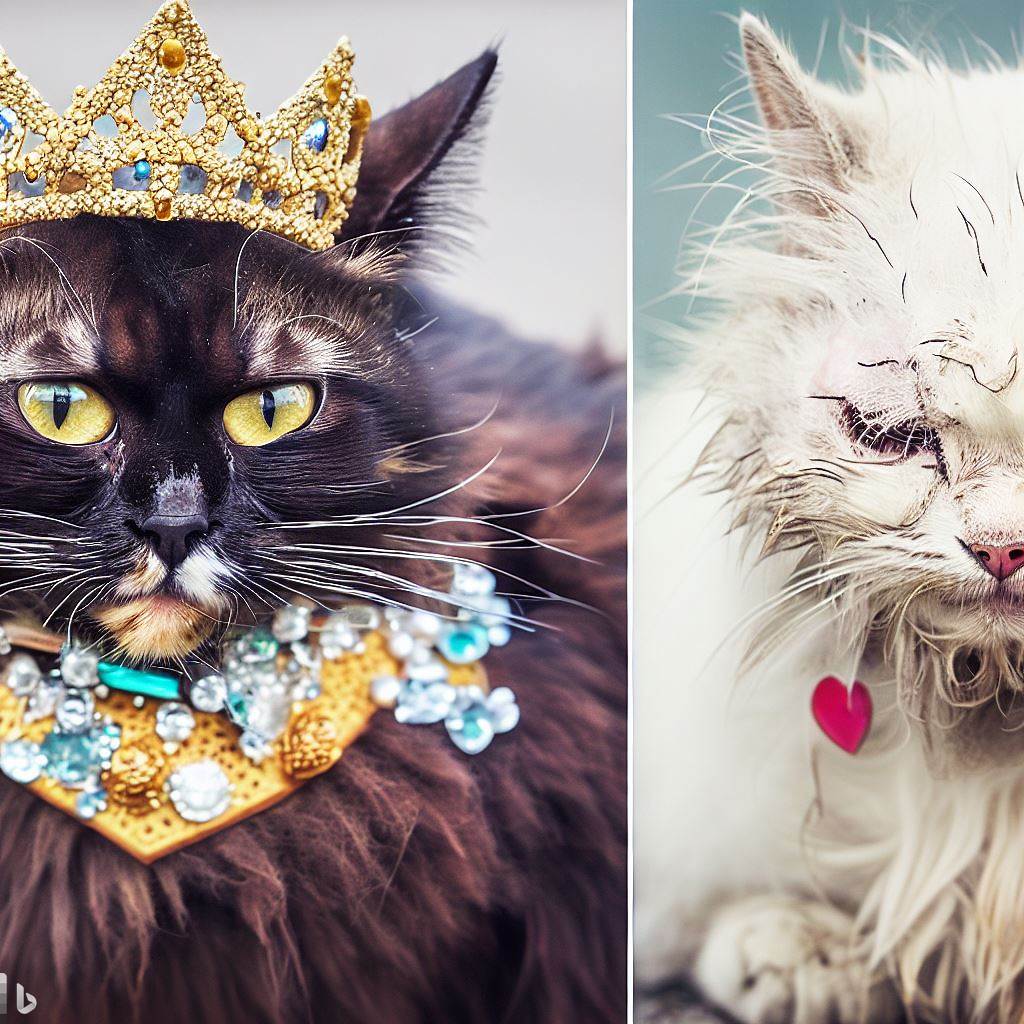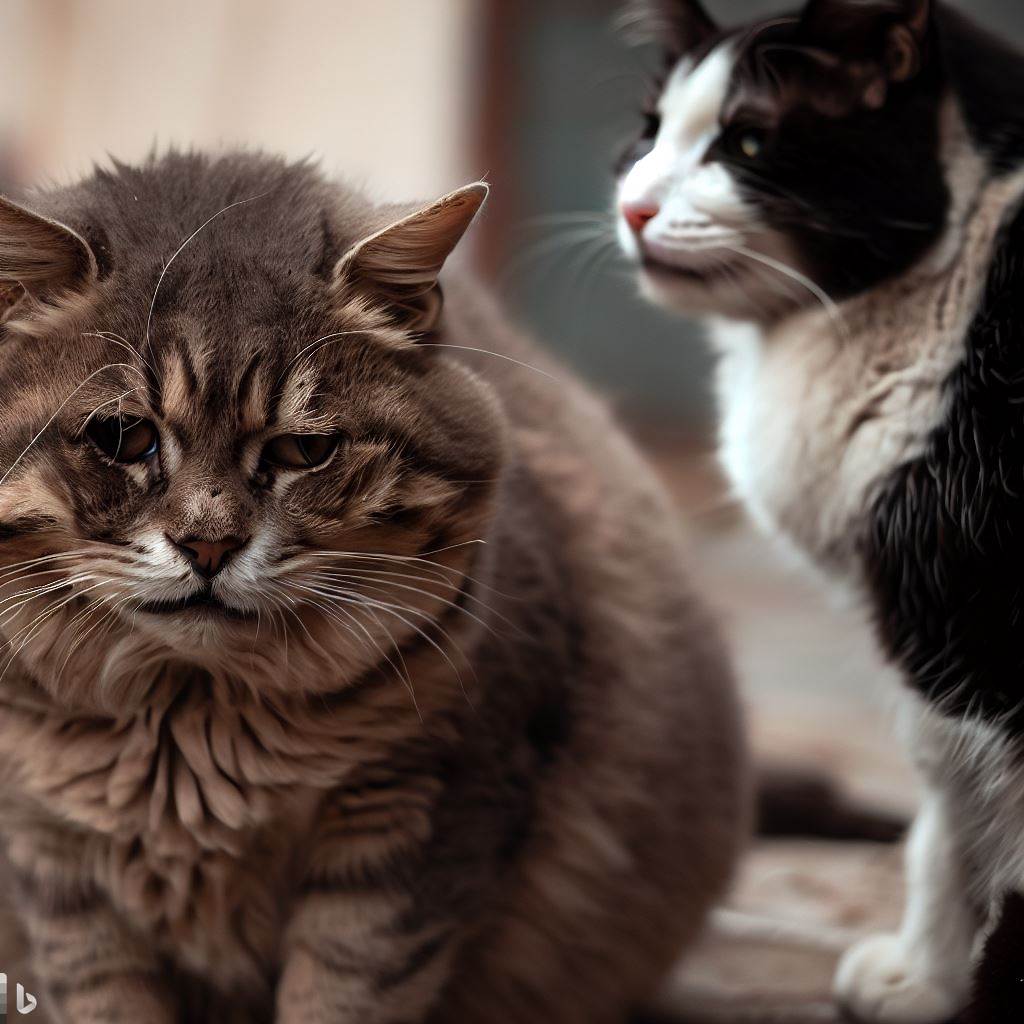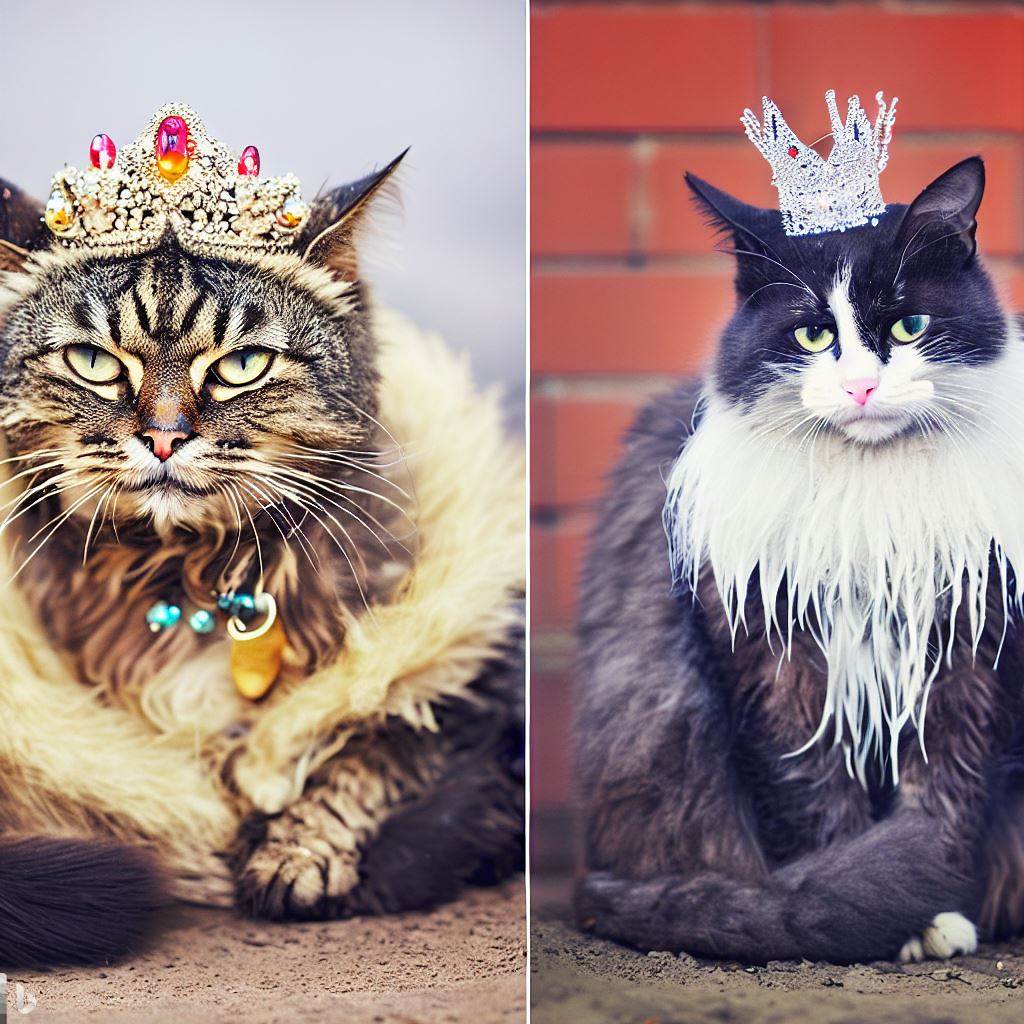




The chilly fall air nipped at my cheeks as I rolled the garbage receptacle down the driveway to the street for the next day’s pickup.
“Meow! Meow!”
I scanned the landscape, looking for the source of the sound that had strummed my heartstrings. There, in the bushes, was a partially white, tiger-faced kitten. She was small and fluffy, but appeared well fed and reminded me of a powder puff. Next thing you know, she vanished and in case she had not a home, I left a dish of cat food for her across the way. Over the course of the following months, I assumed someone owned her since I only saw her a couple times more.
Fast forward to about a month ago, and I officially discovered “Tuna’s” story shortly after she reappeared at my house. Her feral mom had birthed Tuna, along with her four brothers and sisters under my neighbor’s shed. A few compassionate neighbors cared for the cat and her litter while a cat rescue charity had become involved trying to trap, spay, neuter and place the kitties for adoption.
Gazing into Tuna’s eyes, I felt crushed. I could tell that she was familiar with hunger, homelessness and fear. She had to hide from the pack of blood-thirsty coyotes that prowled around at night. She had never known what a human touch felt like, or a warm bed and blanket. She had only slept on hard, mud-packed ground infested with bugs. I wondered if she even knew how to purr. If I got too close, her meows would turn into low, threatening hisses.
I couldn’t help but wonder why some animals and people are born into such difficult circumstances, while others are born into privilege. The question weighed on me like an indigestible lump of sausage in my stomach. Needless to say, I became attached to Tuna and her family and tried to help as best as I could by doing things like checking to see if any of the felines were captured in the cage that had been set by the rescue group.
After I got involved, three weeks later, Tuna and her family disappeared. Our neighborhood cat watch party feared the worst. We searched for them everywhere, but we couldn’t find them.
Another week went by, and we received some good news. The feline family had relocated to a different area of the neighborhood, where they took shelter under another neighbor’s shed. I haven’t seen them myself, but I’ve been assured that they’re doing well. The rescue group is still trying to trap and rescue them, and I’m hopeful that they’ll be able to do so soon.
I was glad that Tuna and her family were safe, but I couldn’t help but think about all the other animals and people who were living in difficult circumstances.The question was one I didn’t have the answer to, but the mere thought of it triggered a flood of memories deep inside.
It all started when I got into my car in the parking lot after a rather extensive grocery shopping trip, feeling particularly exhausted.
When I started it up, a familiar song, “Fast Car,” on a random top-hits radio station caught my attention. It was Luke Combs’ remake of Tracy Chapman’s iconic 1988 hit “Fast Car.” Combs’ version had just hit the top of Billboard’s Country Airplay chart a few weeks ago, but I hadn’t paid close attention to it. I had listened to Tracy’s version countless times back in the ’80s, though.
Combs’ version is a faithful cover of the original, but he brings his own unique style to it. His voice is deeper and more soulful than Chapman’s, and he adds a bit of a country twang. The result is a powerful and emotional rendition of the song.
The lyrics of the song caught me off guard that day. Instead of bolting out of the parking lot, I sank into the driver’s seat, wet from nostalgic tears. I recalled someone, around 15, with dirty blonde, long, wavy hair, flying like a bed sheet drying on a clothesline, outside of an oversized, open 1956 Ford Crown Victoria window.
“Lucy” was what Mac called me back then (and “Lug Nuts,” but that’s another story). He was the one piloting the Crown Vic. Probably one of my only true friends in high school, he sat grinning at my antics, his smile as bright as the perfectly white steering wheel of the car he had lovingly restored. We roared down the road, singing along to the radio as it blasted.
Our favorite song was Rufus & Chaka Khan’s “Tell Me Something Good.” So picture this: Mac would slow the car and pull over to an innocent pedestrian, and I would stretch my body like a piece of taffy and rocket out of the Crown Vic, belting the lyrics at the top of my lungs.
“Your problem is you ain’t been loved like you should
What I got to give will sure ‘nough do you good
Tell me something good
(Tell me, tell me, tell me)
Tell me that you love me, yeah”
Luckily, no one took offense or took us seriously, regardless of their gender or age. (I think I really gave a much-needed adrenaline rush to some of the older guys’ egos, though!)
I had often thought back to those cruising days with Mac, but I never truly understood their poignant meaning until I broke down in tears while listening to Combs’ lyrics. For the first time ever, I had an epiphany: Mac had a fast car and I felt like I belonged! We also crossed the invisible line that separated our suburban neighborhood from the city (“Won’t have to drive too far, Just across the border and into the city.”)
Here are the lyrics that transported me back to those many afternoons spent in Mac’s Crown Vic, a visceral realm where I could relive the memories of those days and understand why they mattered so much:
So, I remember when we were driving, driving in your car
Speed so fast, I felt like I was drunk
City lights lay out before us
And your arm felt nice wrapped around my shoulder
And I, I, had a feeling that I belonged
I, I, had a feeling I could be someone, be someone, be someone
I do believe that these two words are some of the most powerful words in human history: I belonged.
Listening to the song’s lyrics about poverty and hardship resonated with me in that moment.
That being said, I was the kid who got kicked out of sixth grade for asking too many questions, but over the years I knew him, I only asked Mac once about his estranged dad.
You see, Mac’s mom was a single mother of five other children. Only one sister was his biological sister; the rest were half-siblings from his mom’s other relationships. They lived in a dangerous, impoverished neighborhood of the city that we loved to cruise through, naïve as we were.
“I don’t know him.” Mac said, his voice flat and emotionless when I had asked him about his father. But the deep-rooted pain in his eyes told me everything I needed to know. It was the kind of pain you can detect in a feral cat’s eyes. The kind I detected in Tuna. Decades ago, like Tuna, I too wondered why Mac’s mom was forced to live in a ransacked two-room apartment with her children.

Once, in fact, Mac and I had just pulled up to visit his mom and siblings when a white van pulled in. There he was, Jack or John (Mack whispered his inaudible name under his breath) as he hopped out onto the asphalt, his face hidden under dark sunglasses and wearing an inconspicuous pair of jeans and t-shirt, pounding the pavement in a pair of new work boots.
Mac and I sat in the Crown Vic like two upright light bulbs without a fixture. Once Jack or John disappeared into the ransacked apartment building, we drove away. I did not ask questions.The only question that mattered to me was, “How much more hurt could Mac take?”
As it stood, Mac lived with his aunt, who had escaped poverty against all odds to live in suburbia. She managed to just get by on government assistance along with wages from odd jobs. The single mom and her six children lived in a small, rundown house that was once a meat store. She may have narrowly escaped poverty, but no matter how hard she tried, she could not escape the judgment of the “Fat Cats” of our town, who frowned upon the welfare-enabled “feral cats.”
Mac was the eighth resident in the tiny place. He was happy to pay rent, even though he had to sleep on a five-foot slab cot on the floor. He did it to go to our high school, where I had met him. Apparently, it was a lot better than getting bullied and beaten up at his previous high school in the city where he grew up.
From the moment I met him, the student who had been held back three times in school would proudly proclaim, “I’m a grease monkey!” and emphasize the point by bouncing in his chunky, five-inch, shiny black platform shoes down the hallways of our high school.
The second the final school bell rang, he whipped out of school in his Crown Vic in order to get to the service station where he worked as a self-taught mechanic. Although he paid rent to his aunt, whether out of guilt for abandoning his family or out of simple necessity, Mac gave most of his money to his mother. Between Mac’s money and her work as a caterer, his mother managed to obtain her nursing degree, and it looked like the cycle of poverty was about to be broken. It did, for a while.
Going into her second year of nursing, his mother was diagnosed with a rare cancer and died within three months. The other fathers of her children stepped up and took on their responsibilities. There was no room on Mac’s cot, and his sister was left to fend for herself and moved in with a friend. Mac grieved, and he did it over beers at a club in his native city that was notorious for allowing minors to drink alcohol. Then one day, one of the fat cat bullies lit his pants on fire. Fortunately, he was able to extinguish the flames, but he drank alone after that incident.
So there I sat in the grocery store’s parking lot, feeling the wind embrace me once again as I remembered how I nearly tumbled out of Mac’s Crown Victoria as I serenaded my audience in a notoriously unsavory neighborhood. As day turned into night, I would slide down the seat and snuggle up to Mac. He ignited my fire, and he never extinguished it—most of the world had done that at the time, kicking off the lifelong theme of my life.
So, I remember when we were driving, driving in your car
Speed so fast, I felt like I was drunk
City lights lay out before us
And your arm felt nice wrapped around my shoulder
And I, I, had a feeling that I belonged
I, I, had a feeling I could be someone, be someone, be someone
I was no longer too fat, too thin, too zany, too quiet, too foreign, too dumb, too smart, or too much — I simply belonged in our own private classic-car world like a well-worn robe that had lost half of its original weight.

After we graduated from high school, our Crown Vic cruises became a thing of the past. I would see him sporadically, but he was a recluse. Although he did show up for our 20th high school reunion, he ended up holing himself up in a cheap hotel instead of coming to the party, despite my pleas.
Years later, after fighting his own demons, it seemed he had turned a corner. He had married, had children, and became a successful business owner. It was the life he deserved. But then things turned again. At 45 years old, he finally came out, claiming his true authenticity. I was devastated to learn, he died two years later from AIDS complications. I felt a deep sense of grief, because I had lost a dear friend and a part of my own history.
Wiping the last of my tears, I finally pulled out of the parking lot. I couldn’t help but ponder on the bad luck and bad fate that seemed to follow people like Mac, like feral cats in a world of fat cats.
Throughout my life, I have been passionate about animal rescue. My friends know that they will never win an argument with me about buying bred pets, and I have opened my heart and home to numerous rescue cats and one dog, Crouton. On the other hand, I don’t know what kind of influence I had on Mac, but I know he rescued me in ways I can’t even explain. He certainly gave me faith when I had none.
Decades later, sometimes when the days feel long and dark and static, I remember Mac’s indigo tiny slits of eyes lighting up like fireflies. Like the headlights of a classic Crown Vic, they illuminate the path, guiding me through the darkness.



